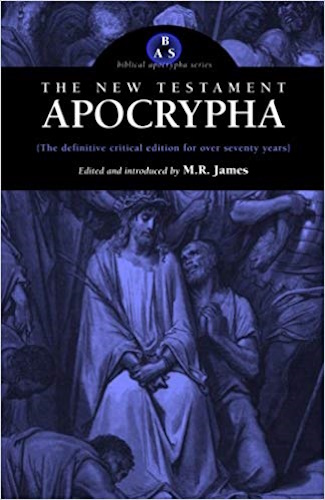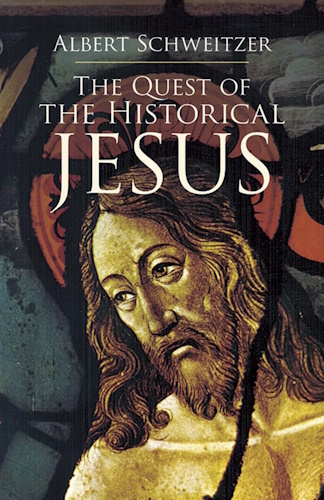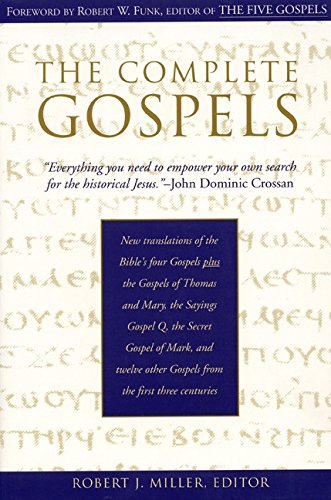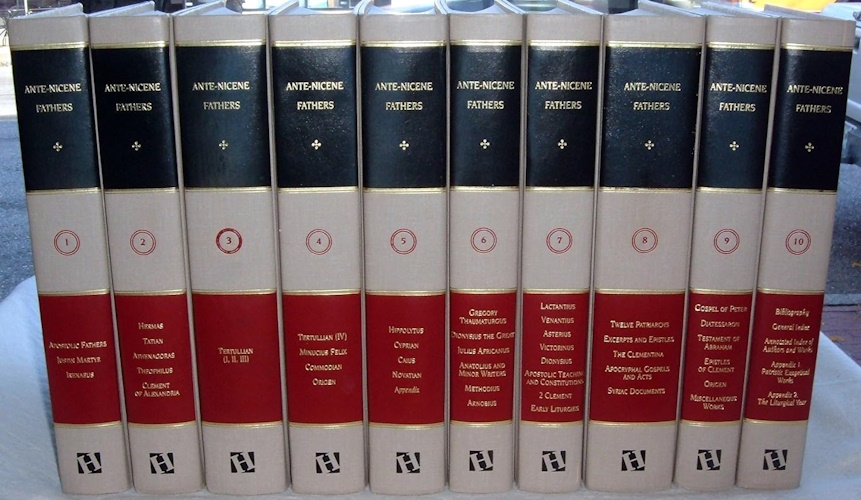
The Gospel of Thomas: Second Greek Form
Translator’s Introductory Notice.
The Gospel of Thomas.—Like the Protevangelium of James, the Gospel of Thomas is of undoubted antiquity. It is mentioned by name by Origen, quoted by Irenæus and the author of the Philosophumena, who says that it was used by the Nachashenes, a Gnostic sect of the second century. Cyril of Jerusalem (d. 386) attributes the authorship not to the apostle, but to a Thomas who was one of the three disciples of Manes. This fact, of course, indicates that Cyril knew nothing of the antiquity of the book he was speaking of. This Manichæan origin has been adopted by many writers, of whom the best known are in recent times R. Simon and Mingarelli.
The text of the first Greek form is obtained from a Bologna ms. published by Mingarelli with a Latin translation in, a Dresden ms. of the sixteenth century edited by Thilo, a Viennese fragment edited by Lambecius, and a Parisian fragment first brought to light by Coteler in his, edition of the Apostolical Constitutions, and translated into English by Jones.
The second Greek form is published for the first time by Tischendorf, who got the ms., which is on paper, of the fourteenth or fifteenth century, from one of the monasteries on Mount Sinai.
The Latin form is also published for the first time, from a Vatican ms. There is another Latin text existing in a palimpsest, which Tischendorf assigns to the fifth century, and asserts to be much nearer the ancient Greek copy than any of the other mss.
It seems pretty clear, from the contents of the book, that its author was a Gnostic, a Docetist, and a Marcosian; and it was held in estimation by the Nachashenes and the Manichæans. Its bearing upon Christian art, and to some extent Christian dogma, is well known.
The Greek of the original is by no means good, and the Latin translator has in many cases mistaken the meaning of common Greek words.
Second Greek Form.
The Writing of the Holy Apostle Thomas Concerning the Childhood of the Lord.
1. I Thomas the Israelite have deemed it necessary to make known to all the brethren of the heathen the great things which our Lord Jesus Christ did in His childhood, when He dwelt in the body in the city of Nazareth, going in the fifth year of His age.
2. On one of the days, there being a rainstorm, He went out of the house where His mother was, and played on the ground where the waters were flowing. And He made pools, and brought in the waters, and the pools were filled with water. Then He says: It is my will that you become clear and excellent waters. And they became so directly. And a certain boy, the son of Annas the scribe, came past, and with a willow branch which he was carrying threw down the pools, and the water flowed out. And Jesus turning, said to him: O impious and wicked, how have the pools wronged thee, that thou hast emptied them? Thou shalt not go on thy way, and thou shalt be dried up like the branch which thou art carrying. And as he went along, in a short time he fell down and died. And when the children that were playing with him saw this, they wondered, and went away and told the father of the dead boy. And he ran and found his child dead, and he went away and reproached Joseph.
3. And Jesus made of that clay twelve sparrows, and it was the Sabbath. And a child ran and told Joseph, saying: Behold, thy child is playing about the stream, and of the clay he has made sparrows, which is not lawful. And when he heard this, he went, and said to the child: Why dost thou do this, profaning the Sabbath? But Jesus gave him no answer, but looked upon the sparrows, and said: Go away, fly, and live, and remember me. And at this word they flew, and went up into the air. And when Joseph saw it, he wondered.
4. And some days after, when Jesus was going through the midst of the city, a boy threw a stone at Him, and struck Him on the shoulder. And Jesus said to him: Thou shalt not go on thy way. And directly falling down, he also died. And they that happened to be there were struck with astonishment, saying: Whence is this child, that every word he says is certainly accomplished? And they also went and reproached Joseph, saying: It is impossible for thee to live with us in this city: but if thou wishest to do so, teach thy child to bless, and not to curse: for he is killing our children, and everything that he says is certainly accomplished.
5. And Joseph was sitting in his seat, and the child stood before him; and he took hold of Him by the ear, and pinched it hard. And Jesus looked at him steadily, and said: It is enough for thee.
6. And on the day after he took Him by the hand, and led Him to a certain teacher, Zacchæus by name, and says to him: O master, take this child, and teach him his letters. And he says: Hand him over to me, brother, and I shall teach him the Scripture; and I shall persuade him to bless all, and not to curse. And Jesus hearing, laughed, and said to them: You say what you know; but I know more than you, for I am before the ages. And I know when your fathers’ fathers were born; and I know how many are the years of your life. And hearing this, they were struck with astonishment. And again Jesus said to them: You wonder because I said to you that I knew how many are the years of your life. Assuredly I know when the world was created. Behold, you do not believe me now. When you see my cross, then will ye believe that I speak the truth. And they were struck with astonishment when they heard these things.
7. And Zacchæus, having written the alphabet in Hebrew, says to Him: Alpha. And the child says: Alpha. And again the teacher: Alpha; and the child likewise. Then again the teacher says the Alpha for the third time. Then Jesus, looking in the master’s face, says: How canst thou, not knowing the Alpha, teach another the Beta? And the child, beginning from the Alpha, said by Himself the twenty-two letters. Then also He says again: Hear, O teacher, the order of the first letter, and know how many entrances and lines it has, and strokes common, crossing and coming together. And when Zacchæus heard such an account of the one letter, he was so struck with astonishment, that he could make no answer. And he turned and said to Joseph: This child assuredly, brother, does not belong to the earth. Take him, then, away from me.
8. And after these things, on one of the days Jesus was playing with other children on the roof of a house. And one boy was pushed by another, and hurled down upon the ground, and he died. And seeing this, the boys that were playing with him ran away; and Jesus only was left standing upon the roof from which the boy had been hurled down. And when the news was brought to the parents of the dead boy, they ran weeping; and finding their boy lying dead upon the ground, and Jesus standing above, they supposed that their boy had been thrown down by Him; and fixing their eyes upon Him, they reviled Him. And seeing this, Jesus directly came down from the roof, and stood at the head of the dead body, and says to him: Zeno, did I throw thee down? Stand up, and tell us. For this was the name of the boy. And at the word the boy stood up and adored Jesus, and said: My lord, thou didst not throw me down, but thou hast brought me to life when I was dead.
9. And a few days after, one of the neighbours, when splitting wood, cut away the lower part of his foot with the axe, and was on the point of death from loss of blood. And a great number of people ran together, and Jesus came with them to the place. And He took hold of the young man’s wounded foot, and cured him directly, and says to him: Rise up, split thy wood. And he rose up and adored Him, giving thanks, and splitting the wood. Likewise also all that were there wondered, and gave thanks to Him.
10. And when He was six years old, Mary His mother sent Him to bring water from the fountain. And as He went along, the pitcher was broken. And going to the fountain He unfolded His overcoat, and drew water from the fountain, and filled it, and took the water to His mother. And seeing this, she was struck with astonishment, and embraced Him, and kissed Him.
11. And when Jesus had come to the eighth year of His age, Joseph was ordered by a certain rich man to make him a couch. For he was a carpenter. And he went out into the field to get wood; and Jesus went with him. And having cut two pieces of wood, and smoothed them with the axe, he put the one beside the other; and in measuring he found it too short. And when he saw this he was grieved, and sought to find another piece. And seeing this, Jesus says to him: Put these two pieces together, so as to make both ends even. And Joseph, in doubt as to what the child should mean, did as he was told. And He says to him again: Take a firm hold of the short piece. And Joseph, in astonishment, took hold of it. Then Jesus also, taking hold of the other end, drew it towards Himself, and make it equal to the other piece of wood. And He says to Joseph: Grieve no more, but do thy work without hindrance. And seeing this, he wondered greatly, and says to himself: Blessed am I, because God has given me such a boy. And when they came back to the city, Joseph gave an account of the matter to Mary. And when she heard and saw the strange miracles of her son, she rejoiced and glorified Him, with the Father and the Holy Spirit, now and ever, and for evermore. Amen.
![]()
![]()
-
Urantia Book, 44:0.11 - The Celestial Artisans
Never in your long ascendancy will you lose the power to recognize your associates of former existences. Always, as you ascend inward in the scale of life, will you retain the ability to recognize and fraternize with the fellow beings of your previous and lower levels of experience. Each new translation or resurrection will add one more group of spirit beings to your vision range without in the least depriving you of the ability to recognize your friends and fellows of former estates.
-
Princess Bride 1987 Wallace Shawn (Vizzini) and Mandy Patinkin (Inigo Montoya)
Vizzini: HE DIDN'T FALL? INCONCEIVABLE.
Inigo Montoya: You keep using that word. I do not think it means what you think it means. -
Urantia Book, 117:4.14 - The Finite God
And here is mystery: The more closely man approaches God through love, the greater the reality -- actuality -- of that man. The more man withdraws from God, the more nearly he approaches nonreality -- cessation of existence. When man consecrates his will to the doing of the Father's will, when man gives God all that he has, then does God make that man more than he is.
-
Urantia Book, 167:7.4 - The Talk About Angels
"And do you not remember that I said to you once before that, if you had your spiritual eyes anointed, you would then see the heavens opened and behold the angels of God ascending and descending? It is by the ministry of the angels that one world may be kept in touch with other worlds, for have I not repeatedly told you that I have other sheep not of this fold?"
-
Urantia Book, Foreword - 0:12.12 - The Trinities
But we know that there dwells within the human mind a fragment of God, and that there sojourns with the human soul the Spirit of Truth; and we further know that these spirit forces conspire to enable material man to grasp the reality of spiritual values and to comprehend the philosophy of universe meanings. But even more certainly we know that these spirits of the Divine Presence are able to assist man in the spiritual appropriation of all truth contributory to the enhancement of the ever-progressing reality of personal religious experience—God-consciousness.
-
Urantia Book, 1:4.3 - The Mystery Of God
When you are through down here, when your course has been run in temporary form on earth, when your trial trip in the flesh is finished, when the dust that composes the mortal tabernacle "returns to the earth whence it came"; then, it is revealed, the indwelling "Spirit shall return to God who gave it." There sojourns within each moral being of this planet a fragment of God, a part and parcel of divinity. It is not yet yours by right of possession, but it is designedly intended to be one with you if you survive the mortal existence.
-
Urantia Book, 1:4.1 - The Mystery Of God
And the greatest of all the unfathomable mysteries of God is the phenomenon of the divine indwelling of mortal minds. The manner in which the Universal Father sojourns with the creatures of time is the most profound of all universe mysteries; the divine presence in the mind of man is the mystery of mysteries.
-
Urantia Book, 1:4.6 - The Mystery Of God
To every spirit being and to every mortal creature in every sphere and on every world of the universe of universes, the Universal Father reveals all of his gracious and divine self that can be discerned or comprehended by such spirit beings and by such mortal creatures. God is no respecter of persons, either spiritual or material. The divine presence which any child of the universe enjoys at any given moment is limited only by the capacity of such a creature to receive and to discern the spirit actualities of the supermaterial world.
-
Urantia Book, 11:0.1 - The Eternal Isle Of Paradise
Paradise is the eternal center of the universe of universes and the abiding place of the Universal Father, the Eternal Son, the Infinite Spirit, and their divine co-ordinates and associates. This central Isle is the most gigantic organized body of cosmic reality in all the master universe. Paradise is a material sphere as well as a spiritual abode. All of the intelligent creation of the Universal Father is domiciled on material abodes; hence must the absolute controlling center also be material, literal. And again it should be reiterated that spirit things and spiritual beings are real.
-
Urantia Book, 50:6.4 - Planetary Culture
Culture presupposes quality of mind; culture cannot be enhanced unless mind is elevated. Superior intellect will seek a noble culture and find some way to attain such a goal. Inferior minds will spurn the highest culture even when presented to them ready-made.
-
Urantia Book, 54:1.6 - True And False Liberty
True liberty is the associate of genuine self-respect; false liberty is the consort of self-admiration. True liberty is the fruit of self-control; false liberty, the assumption of self-assertion. Self-control leads to altruistic service; self-admiration tends towards the exploitation of others for the selfish aggrandizement of such a mistaken individual as is willing to sacrifice righteous attainment for the sake of possessing unjust power over his fellow beings.
-
Urantia Book, 54:1.9 - True And False Liberty
How dare the self-willed creature encroach upon the rights of his fellows in the name of personal liberty when the Supreme Rulers of the universe stand back in merciful respect for these prerogatives of will and potentials of personality! No being, in the exercise of his supposed personal liberty, has a right to deprive any other being of those privileges of existence conferred by the Creators and duly respected by all their loyal associates, subordinates, and subjects.
-
Urantia Book, 54:1.8 - True And False Liberty
There is no error greater than that species of self-deception which leads intelligent beings to crave the exercise of power over other beings for the purpose of depriving these persons of their natural liberties. The golden rule of human fairness cries out against all such fraud, unfairness, selfishness, and unrighteousness.




































